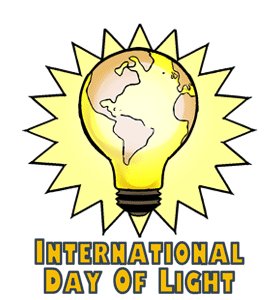International Day of Light
Quick Facts in Canada
| Hashtags | #SEETHELIGHT, #InternationalDayofLight |
|---|---|
| 2025 Date | May 16, 2025 |
| 2026 Date | May 16, 2026 |
2025 Holidays & Dates - Canada
| Canadian & Common Holidays | ||
| Misc. & Int'l. Observancesℹ | ||
| Christian Holidays | ||
| Jewish Holidays | ||
| Muslim Holidays |
|
|
›
|
|
